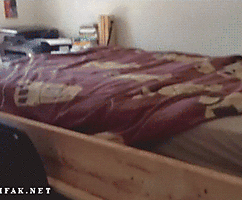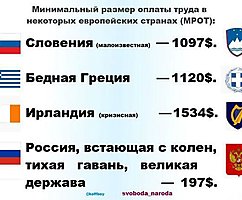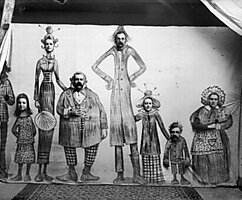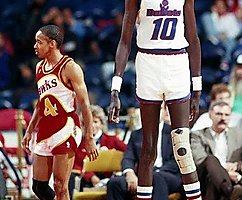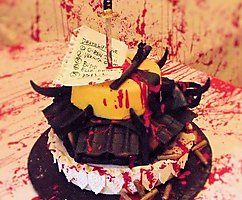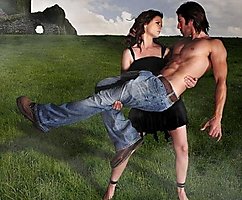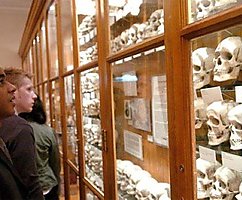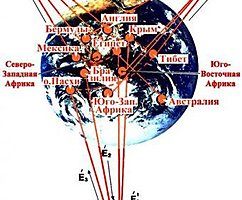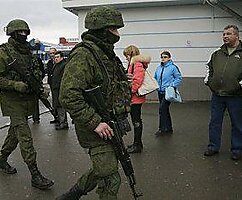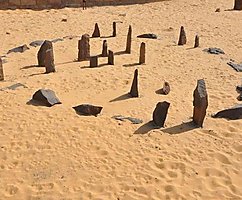James Hollis: What and Who needs a Real man
 Bashny.Net
Bashny.Net
Unusual view of one of the world's most renowned Jungian psychoanalyst.
A real man knows everything. And work, and fight, and women to win and money to earn and kids to raise.
List, after the phrase "a real man should..." can be endless. It can vary depending on the era, country, city or a particular family.
Modern Jungian analyst James Hollis believes this view is mistaken. Imposed on society, the social role of men he calls "saturnine burden". It's a metaphor from Greek mythology – the God Saturn (the Greek Kronos) in order to maintain their power, devoured their children. The two main emotions in which is the life of God, the desire for power and fear to lose it. And fear causes a desire to cause injury – to yourself and others.
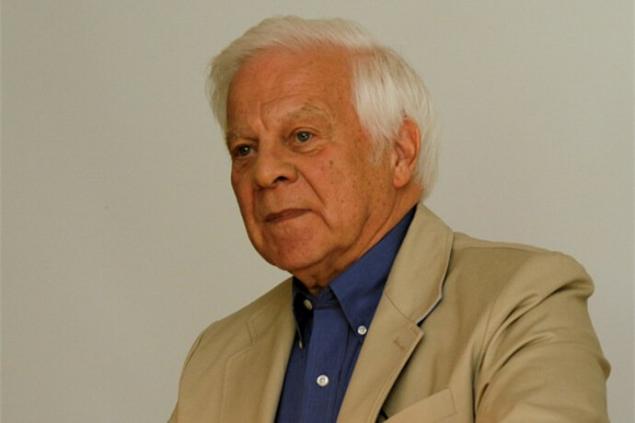
Hollis came to the conclusion that such a scenario takes place in the lives of all modern men. They spend years in compliance with any requirements of the society and not even trying to understand what actually they want. They live in fear do not correspond to the image of the "real men" and led by this fear, hurting others and ourselves. And devour their children – that is, their own ideas and dreams.
"Wow, how cool, you can send away all the shoulds! – you say, — I don't owe anyone anything".
Nothing of the sort. It would be too hasty a conclusion. The difference in approach.
But everything in the queue. Of course, in order to fully understand the topic, you need to read the book Hollis "Under the shadow of Saturn".
I will briefly retell only one of the ideas of the book.

The first "Saturn message", that is,the demand that society makes the man: "to Be a man means to work". Or – a man must sacrifice personal interests and to work to maintain his family.
In his book, Hollis writes that it is this message he received from his father. I think most men would say the same thing about their fathers.
We plow for 8 hours a day, 10-12 many, many weekends. Only in order to feed his family. So the children walked in old shoes, and his wife in ripped tights. For someone to be able to go to Turkey or Egypt or buy spacious accommodation. But we still work hard.
Remembering his father, Hollis clearly writes with sadness: "I knew that such a life is not for him, but, apparently, to live meant for him to be a man".
American Hollis does not in his book the most widespread in the former Soviet Union message to the man. You heard her, guys, each of us should "plant a tree, build a house and raise a son."
In American or European culture, there are other aphorisms, but their essence is that a man must be financially successful, to reach high positions, to create the perfect family. The world is saying to us: be a man and prove it.
The problem is that the home, son and tree almost always requirements do not end there.
"The changing idea of masculinity force men to evaluate their lives in terms of a socially-defined concepts – such as salary, house or car," says Hollis.
We need to be men, but "no one can clearly say what it means, not counting the most banal concepts.
Modern man "please turn from boy to man, but don't have the slightest idea about what it means to be a Mature man without any transitional rituals, without wise elders who could prepare him for this transformation and make it with him. His injuries do not cause transformation, they do not lead to a deepening of consciousness and do not the richer for his life," says the psychologist.
Not all fathers can give their sons a normal example of masculinity – because they themselves could not have it. And it's not their fault, but their misfortune.
Here we come to the second important idea Hollis – modern society has lost the rituals of transition. The rites of male initiation, characteristic of earlier cultures, helping young men to realize that they had become men. Stay in solitude, ritual trauma – all this had a deep psychological meaning.
Hollis describes several rituals of the male initiation of different American Indian tribes and explains their meaning:
"Faced with the inevitable experience of pain, the young man through the suffering of his body gets the message he can no longer return home. He received ecstatic visions and crossed the dividing line and entered into the adult world".
Modern boys also experience pain and suffering. We've been through a street fight, sparring and training. However, not all injuries contribute to the transition to deeper awareness, says Hollis. Without wise leadership of elders and without symbolic and sacred dimension, all the injuries are just injuries. "Because of the lack of transitional rituals men doubt their masculinity, ....only festering wounds, without a new vision and healing."
How to get out of this vicious circle? Hollis describes in his book, seven steps to healing – this passage takes 45 pages. It is worth to summarize in a separate article. For a start I will only excerpt the first paragraph:
"Every son needs to ask himself: "What the injuries were with my father? What he sacrificed (if the sacrifice took place) for me and others? What he had hoped for and dreamed of? Whether it is embodied in the life of their dreams? If he was emotionally free, to live such a life? Whether he lived his life according to the precepts of Saturn? Like his father and his culture interfere with his journey? What I would like to know from him about his life and his history? What I would like to know from him about what it means to be a man? Did the father answer to such questions, but inside, not the outside? Did he ever ask them? What is the unlived life of my father, and I may be in one way or another live it for him?"
These are questions one generation to the next, which I'm not going to spill the beans. If they do not consciously asked out loud, so the answers were unconsciously passing on the inside, often causing injury.
When we ask such questions, even if the father died, we have a better chance to avoid idealization or devaluation. He turns into a man more like us, a brother who went through the same tests. Then, even in the event of a serious injury we'll likely treat him with compassion. If we possess hatred, we will maintain communication with the source of our trauma.If we can better understand their fathers from the point of view of an adult, we will soon be able to become fathers for themselves".
Hollis also suggests looking for teachers to teach others to appreciate real friendship. The main difference is in motivation. To build a house, raise a son, to succeed – for what? In order to prove to the world that I really a man? In this case, you are still "under the yoke of Saturn".
Trying to free men from the "oughts", Hollis still once use the phrase "all men".
"External power can arise only on the basis of internal authority. This truth should learn in practice all men".published
Author: Vlad Golovin
P. S. And remember, just changing your mind — together we change the world! ©
Source: fathersclub.com.ua/hollis_book2/
A real man knows everything. And work, and fight, and women to win and money to earn and kids to raise.
List, after the phrase "a real man should..." can be endless. It can vary depending on the era, country, city or a particular family.
Modern Jungian analyst James Hollis believes this view is mistaken. Imposed on society, the social role of men he calls "saturnine burden". It's a metaphor from Greek mythology – the God Saturn (the Greek Kronos) in order to maintain their power, devoured their children. The two main emotions in which is the life of God, the desire for power and fear to lose it. And fear causes a desire to cause injury – to yourself and others.

Hollis came to the conclusion that such a scenario takes place in the lives of all modern men. They spend years in compliance with any requirements of the society and not even trying to understand what actually they want. They live in fear do not correspond to the image of the "real men" and led by this fear, hurting others and ourselves. And devour their children – that is, their own ideas and dreams.
"Wow, how cool, you can send away all the shoulds! – you say, — I don't owe anyone anything".
Nothing of the sort. It would be too hasty a conclusion. The difference in approach.
But everything in the queue. Of course, in order to fully understand the topic, you need to read the book Hollis "Under the shadow of Saturn".
I will briefly retell only one of the ideas of the book.

The first "Saturn message", that is,the demand that society makes the man: "to Be a man means to work". Or – a man must sacrifice personal interests and to work to maintain his family.
In his book, Hollis writes that it is this message he received from his father. I think most men would say the same thing about their fathers.
We plow for 8 hours a day, 10-12 many, many weekends. Only in order to feed his family. So the children walked in old shoes, and his wife in ripped tights. For someone to be able to go to Turkey or Egypt or buy spacious accommodation. But we still work hard.
Remembering his father, Hollis clearly writes with sadness: "I knew that such a life is not for him, but, apparently, to live meant for him to be a man".
American Hollis does not in his book the most widespread in the former Soviet Union message to the man. You heard her, guys, each of us should "plant a tree, build a house and raise a son."
In American or European culture, there are other aphorisms, but their essence is that a man must be financially successful, to reach high positions, to create the perfect family. The world is saying to us: be a man and prove it.
The problem is that the home, son and tree almost always requirements do not end there.
"The changing idea of masculinity force men to evaluate their lives in terms of a socially-defined concepts – such as salary, house or car," says Hollis.
We need to be men, but "no one can clearly say what it means, not counting the most banal concepts.
Modern man "please turn from boy to man, but don't have the slightest idea about what it means to be a Mature man without any transitional rituals, without wise elders who could prepare him for this transformation and make it with him. His injuries do not cause transformation, they do not lead to a deepening of consciousness and do not the richer for his life," says the psychologist.
Not all fathers can give their sons a normal example of masculinity – because they themselves could not have it. And it's not their fault, but their misfortune.
Here we come to the second important idea Hollis – modern society has lost the rituals of transition. The rites of male initiation, characteristic of earlier cultures, helping young men to realize that they had become men. Stay in solitude, ritual trauma – all this had a deep psychological meaning.
Hollis describes several rituals of the male initiation of different American Indian tribes and explains their meaning:
"Faced with the inevitable experience of pain, the young man through the suffering of his body gets the message he can no longer return home. He received ecstatic visions and crossed the dividing line and entered into the adult world".
Modern boys also experience pain and suffering. We've been through a street fight, sparring and training. However, not all injuries contribute to the transition to deeper awareness, says Hollis. Without wise leadership of elders and without symbolic and sacred dimension, all the injuries are just injuries. "Because of the lack of transitional rituals men doubt their masculinity, ....only festering wounds, without a new vision and healing."
How to get out of this vicious circle? Hollis describes in his book, seven steps to healing – this passage takes 45 pages. It is worth to summarize in a separate article. For a start I will only excerpt the first paragraph:
"Every son needs to ask himself: "What the injuries were with my father? What he sacrificed (if the sacrifice took place) for me and others? What he had hoped for and dreamed of? Whether it is embodied in the life of their dreams? If he was emotionally free, to live such a life? Whether he lived his life according to the precepts of Saturn? Like his father and his culture interfere with his journey? What I would like to know from him about his life and his history? What I would like to know from him about what it means to be a man? Did the father answer to such questions, but inside, not the outside? Did he ever ask them? What is the unlived life of my father, and I may be in one way or another live it for him?"
These are questions one generation to the next, which I'm not going to spill the beans. If they do not consciously asked out loud, so the answers were unconsciously passing on the inside, often causing injury.
When we ask such questions, even if the father died, we have a better chance to avoid idealization or devaluation. He turns into a man more like us, a brother who went through the same tests. Then, even in the event of a serious injury we'll likely treat him with compassion. If we possess hatred, we will maintain communication with the source of our trauma.If we can better understand their fathers from the point of view of an adult, we will soon be able to become fathers for themselves".
Hollis also suggests looking for teachers to teach others to appreciate real friendship. The main difference is in motivation. To build a house, raise a son, to succeed – for what? In order to prove to the world that I really a man? In this case, you are still "under the yoke of Saturn".
Trying to free men from the "oughts", Hollis still once use the phrase "all men".
"External power can arise only on the basis of internal authority. This truth should learn in practice all men".published
Author: Vlad Golovin
P. S. And remember, just changing your mind — together we change the world! ©
Source: fathersclub.com.ua/hollis_book2/
Tags
See also
Where did the real man
Woman will never be able to give my son something that will make him a real man
A real woman and a Real man. It's simple.
A man should
What is a real man. Features of psychology ...
Should a man to provide a woman?
Turn on the guy! 11 signs of a real man
A real man: Mother read a thousand times more than the Father
How all the same to tell a man with the potential of rogue
8 Hidden Male Trauma




